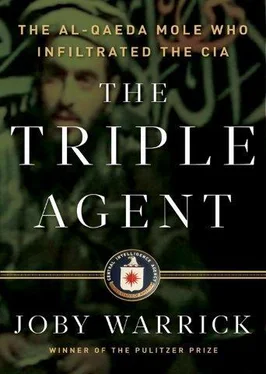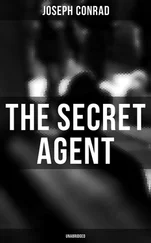Outside, other figures stumbled along the same path, and some exchanged a grim greeting. The dark sky was still chalky with stars, with no trace of the new moon that would mark the end of the month-long Ramadan fast later that evening. Somewhere in town, a muezzin was sounding the predawn call to prayer, his lilting baritone rising and fading against the squawks and beeps of the base’s emergency loudspeakers.
Matthews felt the heaviness of the air, still warm even at that hour. The airfield lights glowed yellow through a dusty fog, casting a feeble light over the parched terrain beyond the fence. Farther up the valley, clusters of tiny lights from the army’s Salerno base shimmered like distant constellations.
It was a thrilling sight and oddly serene. The Haqqani fighters who lobbed occasional mortar rounds at the base rarely hit anything, so the perfunctory huddle in the concrete shelter was mostly an annoyance and a chance to catch up on gossip. But Matthews, barely twenty-four hours into her new job as Khost base chief, found even the little things fascinating. It was perhaps a strange admission, coming from a woman who a week earlier had been a suburban mom working in a sleek office building in northern Virginia, but she loved being in Afghanistan.
“It is exhilarating,” she told one close agency friend back home. Her Afghan assignment was going to take up a year of her life, and she would be absent from her three children for most of that time. She would miss twelve months’ worth of ball games and bedtime kisses, stomachaches and school projects, recitals and family dinners. And she would miss Christmas. But Matthews had volunteered for the posting, and she was now determined to extract every possible advantage from the experience. And to the extent she could, she would enjoy every bit of it, even the middle-of-the-night visits to the bomb shelter.
This one was mercifully short, as there were no other explosions. A chopper crew circling the base with a searchlight found the strewn body parts and quickly pieced together the story. A lone man had crept up the main approach to the base in the moonless blackness and attempted to bury an IED, or improvised explosive device, near a dip in the road where the morning convoys would pass in a few hours. But the bomb had exploded prematurely, leaving pieces of the man scattered across the highway. An almost identical incident had occurred near the same spot a few months earlier, only it ended with two would-be bombers lying dead, one of them a schoolteacher.
In an odd way, such attacks validated Matthews’s belief in the low risk of living in such a dangerous place. She would be safe at Khost, she told worried relatives and friends, because she would stay inside the wire. Local jihadist groups would fling themselves against the walls at regular intervals, but they never quite amounted to a serious threat.
“She told me, ‘I would never allow myself to be put in danger, because of my kids,’ ” said a CIA colleague who met with Matthews a few weeks before she went overseas. “I think she honestly believed it.”
Matthews had already concluded that life in a war zone wasn’t so bad. Her first glimpse of her temporary Afghan home was from the heaving side of a Black Hawk helicopter making the thirty-minute run from Kabul. The city and CIA base were perched on a high plateau surrounded by dun-colored hills, and the terrain reminded her of parts of the American Southwest. “I kept expecting to see the Marlboro Man show up,” she quipped to one of her e-mail pals back in Virginia.
The land had a kind of austere beauty best appreciated from the air. To the north, and visible from the base on a clear day, were the snowcapped White Mountains—home to the infamous al-Qaeda fortress Tora Bora, from which Osama bin Laden had escaped in 2001. The invisible line separating Afghanistan from Pakistan ran along another line of low hills just twenty miles to the east. The territory in between appeared almost lush, by Afghan standards, with irrigated fields and a scattering of trees, in contrast with the relentless brown of much of the country during the hot months.
Khost, home to 160,000 mostly ethnic Pashtuns, had survived a four-year military siege by Soviet forces during the 1980s, yet was remarkably intact. Instead of ravaged, the city appeared merely poor, a maze of dirty, mud-brick houses and shops with only a single noteworthy public structure, an elegant turquoise-domed mosque built by the patriarch of the Haqqani clan, Jalaluddin Haqqani. Bordering the city to the east was the concrete sprawl of Khost Airfield and the base itself, an American island isolated from the host country by concentric rings of HESCO barriers—the ubiquitous sandbags on steroids present at all U.S. military installations in Afghanistan—and concertina wire. A few crumbling relics from the Soviet occupation still stood; they included a squat two-story control tower built by the Russians that now served as a lookout post and the dozen or so wrecked 1980s-vintage aircraft that lined one side of the runway. Most of the newer buildings were prefabricated military structures, such as cargo containers converted into improvised barracks. All things natural and man-made—buildings, streets, houses, vehicles, uniforms—were muted shades of beige and brown, dulled further by an omnipresent coating of dust.
Life inside the wire came with not only a presumption of safety but better than average amenities. The mess hall served up surprisingly good food, including lobster or crab legs on Fridays. The main rec room’s satellite receiver beamed in live baseball and football and the newest Hollywood releases. A separate CIA lounge drew crowds of off-duty officers with its private stock of wine and ice-cold beer. The base gym gleamed with the latest fitness equipment, from elliptical machines to racks of Olympic barbell plates.
Matthews was a runner, and she quickly took up the habit of lacing up her sneakers just after dawn for a lap around the airfield with an eclectic group of CIA and military officers that called itself the Khost Running Club. After her workout she returned to her trailerlike quarters and one of the greatest perquisites accorded to her, the ranking officer on base: a private bathroom. Matthews had bargained hard for the extra privacy, perhaps the most coveted luxury of all.
The commute from her room to her CIA office was only a few steps, instead of the two hours of interstate and Beltway traffic she faced back home. But the new role that awaited her there would be her toughest adjustment by far. The subject matter, al-Qaeda and the Taliban insurgency, she knew well. She had also managed people before. But now she commanded American and Afghan men and women in a place where the bombs and bullets were real. For the first time in her career, the hard choices she faced on the job carried profound consequences for the people working for her.
Matthews answered to her bosses in Langley, just as before, but now she sparred with a new set of partners who thought differently and had priorities separate from those of the CIA. They were the soldiers: Pentagon and NATO brass in Kabul, field commanders in and around Khost, and, most immediately, the Special Forces teams that operated out of the base. The commandos were military rock stars, supremely confident in their skills and used to being treated as elites. They formed natural alliances with their Special Forces brethren within the CIA’s ranks, including several of the paramilitary officers from the CIA’s Special Activities Division, as well as the base’s security detail, which included retired Green Berets and Navy SEALs now working for Blackwater. Some were disdainful of the CIA generally, mocking the newcomers as “children” or eggheaded “Clowns in Action.” It wasn’t just that the CIA lacked military skills; many of them also had little grasp of the local language and culture and rarely left the base to venture outside, military officers said.
Читать дальше












